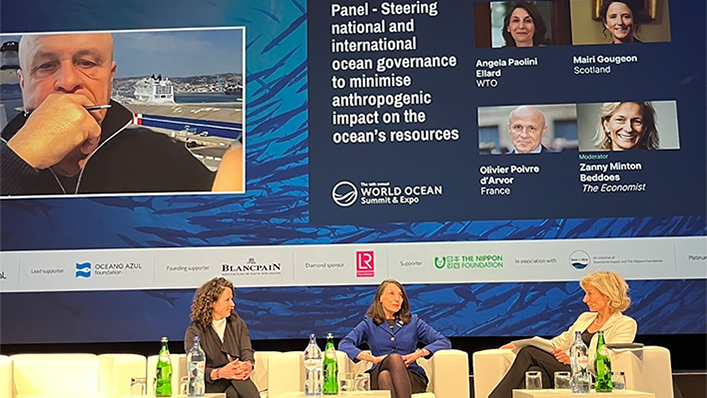
The adoption of the Agreement on Fisheries Subsidies at the 12th Ministerial Conference in June 2022 gave considerable justification for optimism about multilateral ocean governance, DDG Ellard said at the discussion moderated by The Economist Editor-in-Chief Zanny Minton Beddoes. Noting that the Agreement was adopted amid the COVID-19 pandemic, the war in Ukraine and a food crisis, DDG Ellard said this gives hope that members can put their differences aside to address issues concerning the global commons.
DDG Ellard further emphasized that two-thirds of WTO members have to deposit instruments of acceptance at the WTO for the Agreement to enter into force and start delivering its benefits for ocean sustainability. She called on policymakers and officials to have their governments submit their formal acceptance of the Agreement as soon as possible. She also highlighted the binding nature of the Agreement, noting that members are expected to comply with their obligations as soon as the Agreement enters into force. She also emphasized the tools available to developing countries to help them implement the Agreement.
DDG Ellard stressed the importance of concluding the second wave of negotiations to achieve a comprehensive set of disciplines on fisheries subsidies, including addressing subsidies that contribute to overcapacity and overfishing. Noting that WTO members have given themselves an ambitious deadline of MC13, which will take place in February 2024 in Abu Dhabi, she emphasized the importance of transparency and access to reliable data so that members can agree on a common set of facts about the amounts and sources of subsidization.
DDG Ellard concluded by calling on all stakeholders to do their utmost to strengthen the global ocean governance. “We are all in this together,” she said.
Share
Reach us to explore global export and import deals